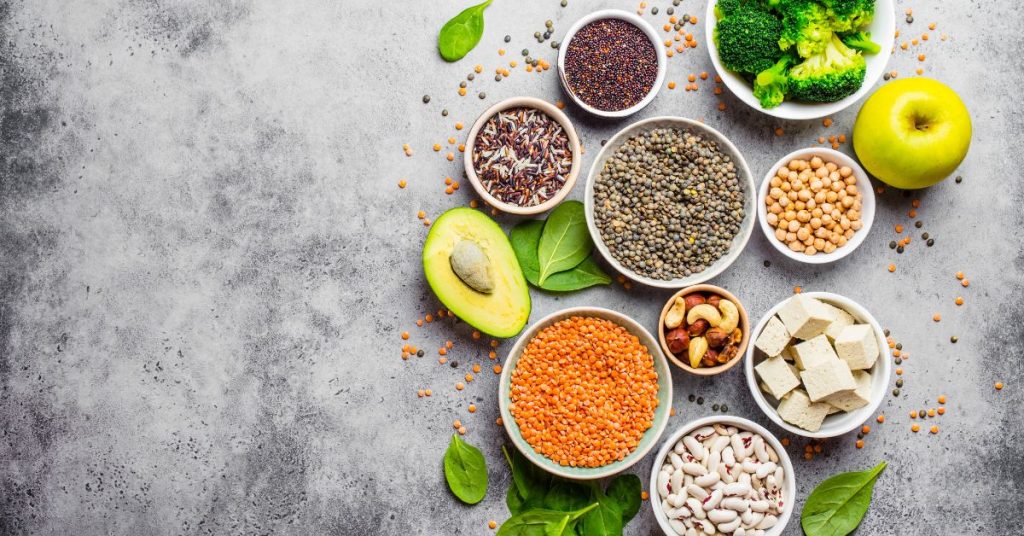Everyone is aware that wine is produced by fermenting crushed grapes. So it would seem that all non-alcoholic vegan wines are considered as such. It’s not quite that easy.
According to Forbes, veganism is not governed by the USDA or FDA, and different people have varied definitions of the term. Most people believe all wine is vegan because it is made from fermented grape juice. However, adding small amounts of ingredients that may be problematic for vegetarian and vegan consumers occurs frequently during the winemaking process, particularly during the fining process.
Even while fermenting grapes is used to make wine, not all non-alcoholic wines are vegetarian or vegan. Some wines are unsuitable for vegans because they include elements that come from animals. Fortunately, you may choose from a variety of meat- and alcohol-free wines.
Here, we examine what makes some wines non-vegan and discuss vegan-friendly alternatives. We then list some of the greatest vegan wines for you to try.
The History of Vegan Wine
Educating people about the fact that not all wine is vegan is important. Over the past ten years, news stories have gradually let out that wine is created from more ingredients than grapes and sulfites. Vegan wine, however, is probably as old as wine itself. (It is believed that wine was first discovered in antiquity, around 7,000 BC. Whoa.)
It’s difficult to pinpoint the exact date that vegan wine first appeared without written documents. However, most believe that it was likely vegan because early wine was made from fermented grape juice and underwent less processing.
Fining agents and other types of filtration are relatively new innovations in winemaking. As the craft developed, people discovered ways to clarify the taste and appearance of wine by using fining agents, some of which are made from or contain byproducts of animals. Fining wine enhances the complex flavors of the various wines.
What Makes A Non-Alcoholic Wine Vegan?

It refers to the dietary practice of avoiding all goods made entirely or partially from animals. In other words, a wine can be considered vegan as long as it doesn’t contain any ingredients derived from animal products.
Since grapes aren’t made from animal products, it would make sense to assume that they are all vegan. However, the creation of modern wine is rather laborious and involves various components and additives (the distinction between these two is crucial for non-alcoholic vegan wine, which we’ll discuss later).
This includes fining the wine, which is the process of incorporating fining agents into the wine. These are frequently made from items originating from animals. As a result, the wine can no longer have the vegan designation.
The location and kind of soil utilized for grape cultivation impacts the wine’s flavor. Depending on the winery, the winemaker could choose not to fine the wine to preserve the wine’s natural characteristics.
Vegan wine is becoming increasingly popular as consumer demand for vegan goods increases. It’s difficult to offer precise estimations right now. Many wineries can claim that their product is vegan because the term “vegan” is unregulated, and consumers have no way of knowing if this is accurate or not.
Winemakers worldwide are aware of the real demand for vegan wines. They want to build a successful business that suits this customer base. Thus, wine producers don’t want to alienate a sizable consumer base.
What Are The Common Animal-Based Products Found In Non-Alcoholic Wine?
Winemakers use a variety of fining agents, each of which has unique properties that determine how they will affect the wine. For instance, some will be employed specifically to remove tannins, while others may reduce the astringency of a wine.
Many of these fining agents come from animal-based substances. These consist of:
- Fish oil
- Casein (milk protein)
- Egg albumen (derived from egg whites)
- Gelatin
- Chitin (fiber from crustacean shells)
- Isinglass (gelatin derived from fish bladders)
As mentioned above, the winemaking process determines whether a wine is vegan or not. Red, white, and rose wines can all be vegan because they lack any particular characteristics that would preclude this.
The same is true of sweet and dry wines. Wines with additional sugar must show that the sugar was not produced using bone char for the wine to be labeled vegan (winemakers frequently add sugar to make wines sweeter).
What Are Some Vegan Alternatives That Can Be Used As Fining Agents?

The alternative, more popular choice available to winemakers is to filter the wine using non-animal-based fining agents. By doing this, they can maintain the wine’s lack of animal-based ingredients and maintain its vegan label.
The following are a few examples of fining agents that are suitable for vegans:
- Vegetable plaques
- Carbon
- Limestone
- Bentonite clay
- Kaolin clay
- Silica gel
- Plant casein
These allow winemakers to manufacture vegan wine at a comparable rate to non-vegan wine, which is fantastic news for those who enjoy drinking vegan wine because it means more vegan wines are available. Even better, this trend is spreading to the market for N/A wine, where an increasing number of vegan wines are now available.
6 Non-Alcoholic Vegan Wines You Should Try
Surely
Wines from Surely are low in calories, free of added sugars, vegan, gluten-free, and keto-friendly. They offer a good variety of wines to pick from; their non-sparkling offerings include Pinot Noir and a Rose. Try a sparkling white, and a sparkling rose if you enjoy sparkling wine. Surely also provides Brut cans as well as Sparkling Rose cans.
Grüvi
Compared to the other non-alcoholic wines on this list, Gruvi is unique. This is because Gruvi’s wines come in single-serving ten fluid-ounce beer-style glass bottles rather than 750ml wine bottles or cans. They are therefore ideal for enjoying a drink by yourself.
If you desire a vegan non-alcoholic drink, Gruvi may be the wine for you because it also includes the “absolutely no alcohol” option.
Their bubbly rose has strawberry and tart apple aromas and is semi-dry. It must taste fantastic because it was chosen as the finest non-alcoholic wine for the James Beard Zero proof Dinner in New York in 2020. Gruvi also produces Prosecco and non-alcoholic beers.
Töst
Töst is not a de-alcoholized wine, in contrast to the other non-alcoholic wine bottles on this list. Instead, Töst is a white tea, ginger, and white cranberry-based substitute for sparkling wine (like a blend designed to imitate the taste of wine).
Since it is more of a juice-wine substitute, you don’t need to be concerned with non-vegan fining agents. You won’t also have to worry about processed bone char sugar because Töst is also sweetened with agave.
Pierre Zero
There is a vegan, non-alcoholic Sparkling Rose produced by Pierre Zero, which is ideal for special events. You can even choose their Pink Sparkling Rose for a baby shower.
Opia
Opia is an organic wine with 0% alcohol. The four available kinds are chardonnay, Rose, Cabernet-Sauvignon, and Sparkling Chardonnay. The wine is made in the South of France and undergoes a protracted maceration before being pressed. The grape’s constituents, including polyphenols, anthocyanins, tannins, and resveratrol—the same flavors you receive from the grape during fermentation—are extracted.
Fre
This article covers red, sparkling, and rose wines, but what if white wine is your preferred type? Sutter Homes’ owned company Fre has you covered. Two of Fre’s vegan non-alcoholic wines, a Chardonnay and a Moscato, are available.
You can easily get Fre wines at Target.
Related Articles
Non-Alcoholic Vegan Wines FAQs
What wines are vegan-friendly?
Wine can be considered vegan as long as it doesn’t contain any ingredients derived from animal products. Here is a list of brands where you can get N/A vegan wines.
1. Surely
2. Gruvi
3. Tost
4. Pierre Zero
5. Opia
6. Fre
Is there any non-vegan alcohol?
Due to the ingredients used in the filtration process, including isinglass, gelatin, and casein, beer, wine, and cider may not be vegan-friendly. Some cocktails contain milk and eggs, and some non-vegan flavorings, such as honey, may be added.
Instead of isinglass, some producers may filter their alcoholic beverages using egg whites, also known as albumin or chitin, which comes from the shells of crustaceans. To add new flavors, some contemporary craft beers also incorporate lactose, honey, and pretty much anything else you can think of.
Is there vegan white wine?
The fact that many vegans and vegetarians favor white vegan wine is well-known to manufacturers. As a result, non-animal substances are now added to wine to remove tannins and enhance its color, texture, and flavor.
There are also brands that sell non-alcoholic vegan wines with a wide selection, from white to red wines.
Why not every wine is vegan?
You might wonder how fermented grape juice is not vegan. It turns out that the winemaking process may use animal products you were unaware of, especially with modern technologies.
Consumers who are vegetarian or vegan may be concerned about the minute amounts of chemicals frequently added throughout the winemaking process, particularly during the fining process. Because so many of these ingredients come from animal bones, intestines, or other byproducts, vegans and vegetarians should avoid the wine.
